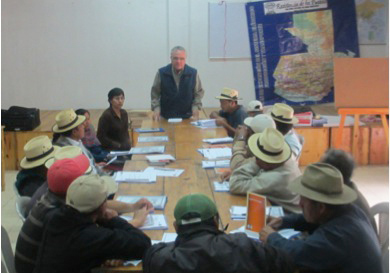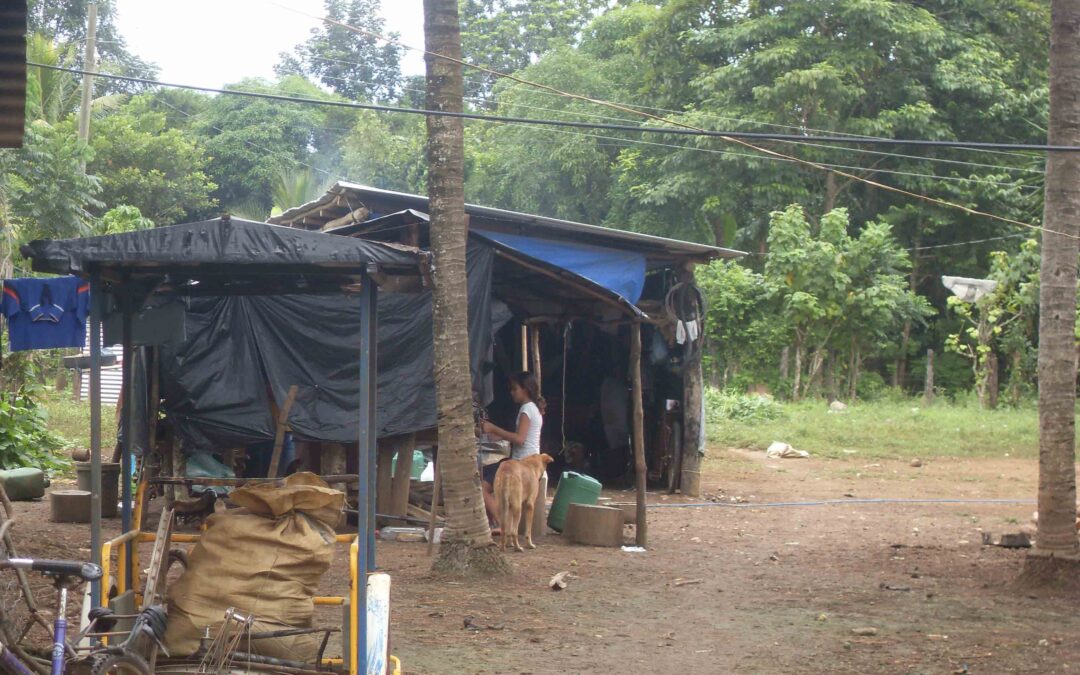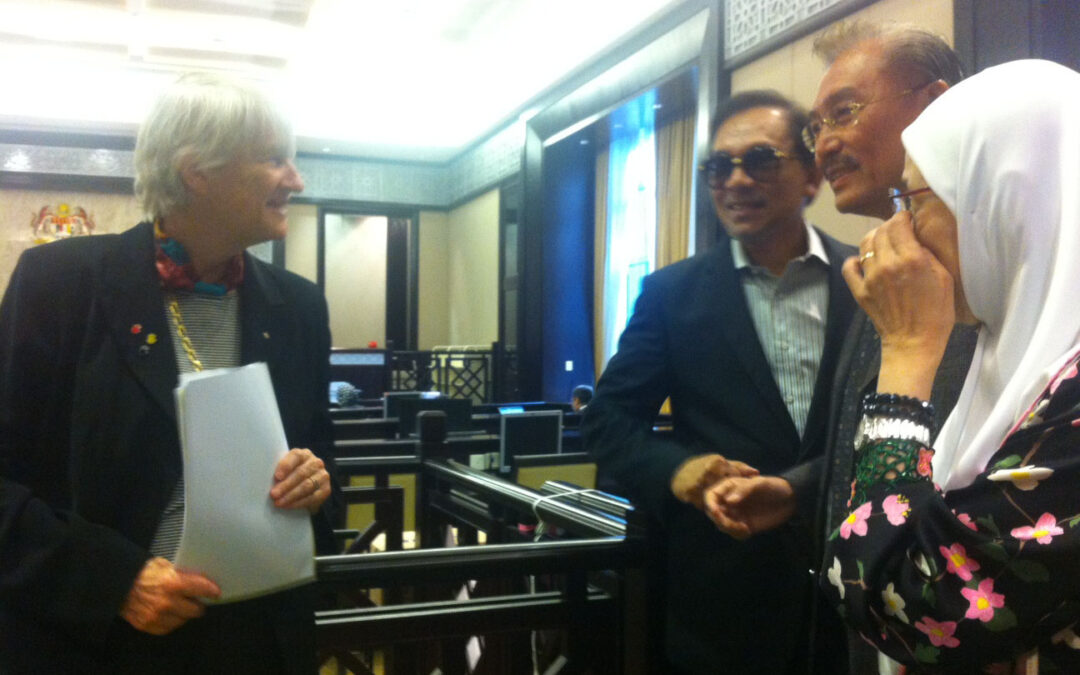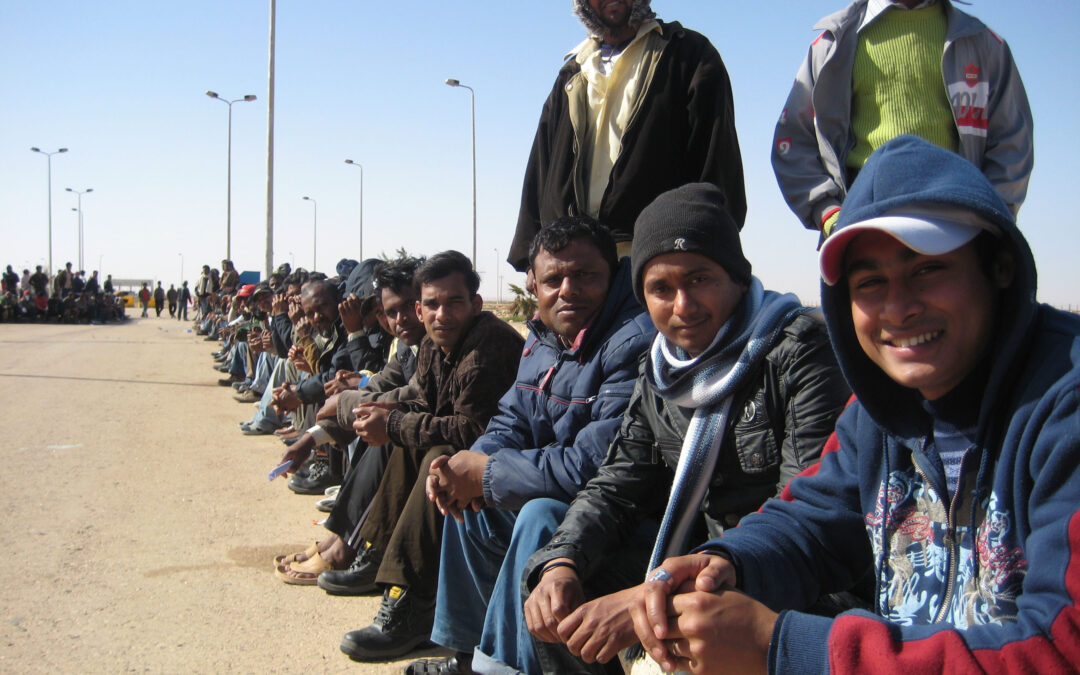
Sep 26, 2013 | News
La oficina de la CIJ en Centroamérica realizó una visita a Nebaj, Cunen y Sacapulas, municipios del departamento de Quiché, con el objeto de implementar un taller en cada municipio.
Los talleres tienen el objetivo de entregar los resultados de la investigación sobre la situación registral de los ejidos de Nebaj, Chajul, Cotzal, Cunen y Sacapulas, que realizara a solicitud de diferentes comunidades de dichos municipios.
La CIJ pudo constatar que estas comunidades siguen estando seriamente afectadas por la pobreza y extrema pobreza en la que viven.
Las violaciones al derecho a la alimentación, a la vivienda, a la salud, a la educación y a otros derechos colectivos les siguen causando serios daños y alcanzar su respeto sigue siendo una tarea pendiente, a pesar de los diferentes compromisos de Estado establecidos en los acuerdos de paz.
En los diferentes talleres realizados, las comunidades identificaron las principales acciones públicas que los han afectado en los últimos años.
Además, plantearon un nuevo problema relacionado con el intento de remedir las áreas protegidas que se han creado para la protección de los recursos naturales y del medio ambiente.
Los talleres también permitieron a las comunidades identificar las principales acciones jurídicas y políticas que tomarán en el futuro, para continuar con la defensa de sus territorios y recursos naturales.
Guatemala-Tierra talleres de Nebaj, Cunen y Sacapulas-news-web story-2013-spa (full text in pdf)

Sep 25, 2013 | News
The ICJ continues to be disappointed over the continued arbitrary detention and refusal of bail of Secretary of human rights organization, Odhikar, and Supreme Court Advocate Adilur Rahman Khan.
The ICJ urged the Bangladeshi authorities to drop their opposition to Adilur Rahman Khan’s bail application.
On 25 September 2013, a cyber crimes tribunal in Dhaka refused Adilur Rahman Khan’s bail application. He had earlier been denied bail on 11 August 2013 and 9 September 2013.
“Adilur Rahman Khan is being arbitrarily detained for his lawful exercise of the right to freedom of expression and his legitimate work as a human rights defender,” said Ben Schonveld, ICJ’s South Asia Director. “What we are seeing is a Government crackdown on voices of dissent.”
Under international law, all persons are presumed innocent until proven guilty.
Under Article 9 of the International Covenant on Civil and Political Rights (ICCPR), to which Bangladesh is a party, there is a presumption of pre-trial release.
A person can only be denied pre-trial release where it is reasonable and necessary in all of the circumstances to prevent absconding, interference with evidence or recidivism.
“The Government cannot show that Adilur Rahman Khan poses a flight risk,” Schonveld added. “In fact, he faces a serious threat of torture and ill-treatment during detention, as documented by Odhikar and other human rights organizations.”
The ICJ reiterates its call on Bangladesh to immediately and unconditionally drop all charges against Adilur Rahman Khan and Nasiruddin Elan, ensure Adilur Rahman Khan is treated in accordance with international law in custody, and cease its harassment of Odhikar.
Contact
Ben Schonveld, ICJ South Asia Director (Kathmandu), t: +977 14432651; email: ben.schonveld(a)icj.org

Sep 24, 2013 | News
Por primera vez, un Juzgado de primera instancia, condenó al Estado guatemalteco por violaciones al derecho a la alimentación.
Está incluye la violación al derecho a la vida, a un nivel de vida adecuado, a la salud, a la educación y a la vivienda de niños y niñas del municipio de Camotán del departamento de Chiquimula al noroeste de este país.
El Estado de Guatemala fue declarado responsable de estas violaciones, por omisión, al no contemplar programas, políticas, acciones y medidas eficaces que evitaran problemas de salud en estos niños a causa de la desnutrición crónica sufrida por falta de una alimentación adecuada.
Las sentencias fueron emitidas entre abril y mayo de este año por el Juzgado de la Niñez y Adolescencia y de Adolescentes en conflicto con la Ley Penal del departamento de Zacapa.
Estas resoluciones obligan al Ministerio de Agricultura y Ganadería y Alimentación, al Ministerio de Salud y Asistencia Social, al Ministerio de Comunicaciones, Infraestructura y Vivienda, al Ministerio de Educación, al Ministerio de Trabajo y Previsión Social, al Ministerio de Desarrollo Social, a la Secretaria de Seguridad Alimentaria y Nutricional, al Consejo Nacional de Seguridad Alimentaria y Nutricional, al Fondo de Tierras, a la Secretaria de Asuntos Agrarios, a la Procuraduría General de la Nación, a la Procuraduría para los Derechos Humanos y a la Municipalidad de Chiquimula a que adopten una serie de medidas para restaurar los derechos violados.
A solicitud de la Campaña Guatemala sin Hambre y de los abogados litigantes Jaime Tecu y Lorena Ramírez, la oficina de la Comisión Internacional de Juristas en Centroamérica presentó en todos los casos un Amicus Curiae a fin de ilustrar al juzgador sobre los estándares internacionales relativos a la protección de niños/niñas y al derecho a la alimentación, así como las obligaciones jurídicas generales y específicas de los Estados en esta materia.
Además se abordó el acceso a la justicia, la exigibilidad legal del derecho a la alimentación, la función de la administración de justicia y la responsabilidad del Estado de Guatemala en materia del derecho a la alimentación.
La elaboración del Amicus Curiae contó con el apoyo del Programa de Derechos Económicos, Sociales y Culturales (DESC) de la CIJ.
Estas sentencias significan un avance para la justiciabilidad de los DESC y constituye un paso para lograr el acceso a la justicia de poblaciones vulnerables en Guatemala.
Además, representa un precedente para que otros casos sean judicializados y se logre que el Estado de Guatemala cumpla con sus obligaciones de respetar y proteger el derecho a la alimentación según los estándares internacionales de protección de derechos humanos.
En coordinación con la Campaña Guatemala sin Hambre y con los abogados antes mencionados se llevarán a cabo diferentes acciones para la ejecución de las sentencias.
Se adjunta a esta nota una copia de uno de los Amicus Curiae presentados por la CIJ, así como la última sentencia emitida en uno de los casos.
Guatemala-CIJ Amicus Derecho a la Alimentación-legal submissions-2013-spa (full text in pdf)
Guatemala-Resumen casos de los niños y niñas de Camotán-cases-2013-spa (full text in pdf)
Guatemala-Sentencia Caso Alimentacion Leonel Amador Garcia-cases-2013-spa (full text in pdf)
Guatemala-Sentencia Caso Alimentacion Mayra Amador Espino-cases-2013-spa (full text in pdf)
Guatemala-Sentencia Caso Alimentacion Dina Marilu y Malvelita Lucila-cases-2013-spa (full text in pdf)
Guatemala-Sentencia Caso Alimentacion Brayan Rene Espino Ramirez-cases-2013-spa (full text in pdf)

Sep 19, 2013 | News
The ongoing involvement of the lead prosecutor in the hearing on the appeal against the acquittal of opposition leader, Anwar Ibrahim, raises concerns about prosecutorial impartiality, the ICJ said today.
The ICJ is particularly concerned at the failure of the lead prosecutor, Datuk Seri Muhammad Shafee Abdullah, who was said to have some prior knowledge of the facts of the case, to remove himself from involvement in the proceedings and so maintain an appearance of prosecutorial integrity and impartiality.
“This case is a significant test of the integrity of the judicial system in Malaysia, which for so long has been the subject of concern to human rights proponents, bodies and organizations,” said Justice Elizabeth Evatt, a Commissioner of the ICJ who was observing the proceedings.
The hearing on the appeal was postponed to allow the preliminary objection raised on the first day, 17 September, by the lawyers of Anwar Ibrahim against Judge Tengku Maimun Tuan Mat’s selection as a member of the three-person panel to hear the appeal.
The defense lawyers argued that there was a perception of bias due to Judge Tengku Maimun Tuan Mat’s former ruling in a libel suit involving Anwar Ibrahim and the then Prime Minister Mahathir Mohamad in 2007.
Judge Tengku Maimum Tuan Mat thereafter recused herself from the proceedings.
The Court of Appeal therefore reconvened on the second day, 18 September, with a new judge, Dato’ Rohana Binti Yusuf, to hear the motion objecting to the appointment of Datuk Seri Muhammad Shafee Abdullah as lead prosecutor in the case.
The motion was based partly on the fact that that Datuk Seri Muhammad Shafee Abdullah was present at Deputy Prime Minister Najib’s home at the same time as the complainant two days before the incidents leading to the filing of charges against Anwar Ibrahim.
At the very beginning of the case, Datuk Seri Muhammad Shafee Abdullah filed an affidavit concerning this fact, although he was not called as a witness in the proceedings.
The Court later denied the motion objecting to his appointment as lead prosecutor in this appeal, saying that there was no conflict of interest or apparent unfairness.
Justice Evatt, however, expressed concern that Datuk Seri Muhammad Shafee Abdullah had taken on the role of lead prosecutor in the appeal.
“We expect higher standards of prosecutorial conduct,” she said. “Considering the political overtones in this case, Datuk Seri Muhammad Shafee Abdullah should be especially sensitive to any appearance that might lead to a perception of bias and partiality that might arise from his earlier knowledge of facts of the case.”
The UN Guidelines on the Role of Prosecutors provide that in the performance of their duties, prosecutors shall carry out their duties with impartiality.
The ICJ also acknowledged Judge Tengku Maimun Tuan Mat’s recusal as a sign that the Court of Appeal recognized the need to appear impartial. Under the UN Basic Principles on the Independence of the Judiciary, “judges shall always conduct themselves in a manner as to preserve the dignity of their office and the impartiality and independence of the judiciary.”
The Bangalore Principles of Judicial Conduct, state that to ensure such impartiality “a judge shall disqualify himself or herself from participating in any proceedings in which it may appear to a reasonable observer that the judge is unable to decide the matter impartially.”
The Court did not indicate new dates on when the hearing on the appeal would take place. The ICJ will continue to monitor this case.
The ICJ has previously condemned Malaysia’s continuing use of colonial-era criminal charges of ‘sodomy’ to cover even consensual sexual relations between adults.
The ICJ believes that Article 377B of the Malaysian Penal Code is inconsistent with respect for the right to privacy under international standards.
Justice Evatt, the first female judge to be appointed to an Australian Federal Court, a former member of the United Nations Human Rights Committee, and a commissioner of the ICJ, traveled to Malaysia to observe the appeal hearing from 17 to 18 September 2013, at the Court of Appeal in Putrajaya.
Contact:
Emerlynne Gil, International Legal Adviser, t +662 6198477 ext. 206 ; email: emerlynne.gil(a)icj.org

Sep 17, 2013 | News
The ICJ said that the death sentence handed down today by Bangladesh’s Supreme Court against Abdul Quader Mollah is incompatible with international principles of fair trial.
If carried out, the sentence would violate his right to life and freedom from cruel, inhuman, or degrading punishment.
On 17 September 2013, the Appellate Division of the Supreme Court of Bangladesh upheld the prosecution’s appeal to impose the death sentence on Abdul Quader Mollah (photo), the assistant Secretary-General of Jamaat-I-Islami.
Abdul Quader Mollah had received a life sentence on February 5, when the International Crimes Tribunal (ICT) convicted him on five counts, including murder and rape.
“The prosecution’s appeal to impose the death sentence on Abdul Quader Mollah was based on a law that was not in force when he was first convicted, and applying that law retroactively, especially for the death penalty, violates international law,” said Sam Zarifi, ICJ’s Asia-Pacific Director.
On 17 February 2013, Parliament passed an amendment to the International Criminal (Tribunals) Act 1973 to enable prosecutors to appeal a life sentence and seek the death penalty.
Before this amendment, the prosecution was only allowed to appeal if the accused was acquitted.
The ICJ says the retrospective application of the amendment in Abdul Quader Mollah’s case is incompatible with Bangladesh’s obligations under the International Covenant on Civil and Political Rights (ICCPR), including Article 15, which prohibits the imposition of a heavier penalty than provided for at the time the criminal offence was committed.
“Judgments such as these highlight the serious problems with the war crimes tribunal that undermine its legitimacy,” Zarifi further said. “The wounds of war can only be healed through a fair and transparent trial process that meets international standards of fair trial and due process of law.”
“It is essential that those responsible for committing atrocities during the Bangladeshi war of liberation are prosecuted and brought to justice,” Zarifi added. “But the death penalty perpetuates the cycle of violence and is a perversion of justice, and all the more so when it is imposed in violation of due process.”
The ICJ considers the death penalty in all cases to constitute a violation of the right to life and the right not to be subjected to cruel, inhuman or degrading punishment.
The ICJ calls on Bangladesh to join the great majority of States around the world in rejecting the use of the death penalty.
To that end, Bangladesh should impose a moratorium on the practice and take steps towards its abolition, as prescribed by repeated United Nations General Assembly Resolutions.
Contacts:
Sam Zarifi, ICJ Asia-Pacific Regional Director, (Bangkok), t:+66 807819002; email: sam.zarifi(at)icj.org
Sheila Varadan, ICJ Legal Advisor, South Asia Programme (Bangkok), t: +66 857200723; email: sheila.varadan(a)icj.org

Sep 16, 2013 | News
The ICJ, OSCE and Group 484 are holding a training on migration and international human rights law starting on Monday 16 September in Zlatibor (Serbia).
The training has been organized by the Organization for Security and Cooperation in Europe (OSCE) and the Serbian NGO “Group 484” and will be given by the International Commission of Jurists. It will focus on detention of migrants and human rights; economic, social and cultural rights of migrants; and access to international human rights mechanisms, drawing from the jurisprudence of the European Court of Human Rights, of the UN human rights systems and from EU law. The training will be centered on the ICJ Practitioners Guide no. 6: Migration and International Human Rights Law.
ICJJointSeminar-MigrationHumanRights-Agenda-Serbia-2013 (Download the agenda of the seminar)
Photo credit: © Stabilisation Unit/DFID (the DFID has no involvement in nor does support this event)











